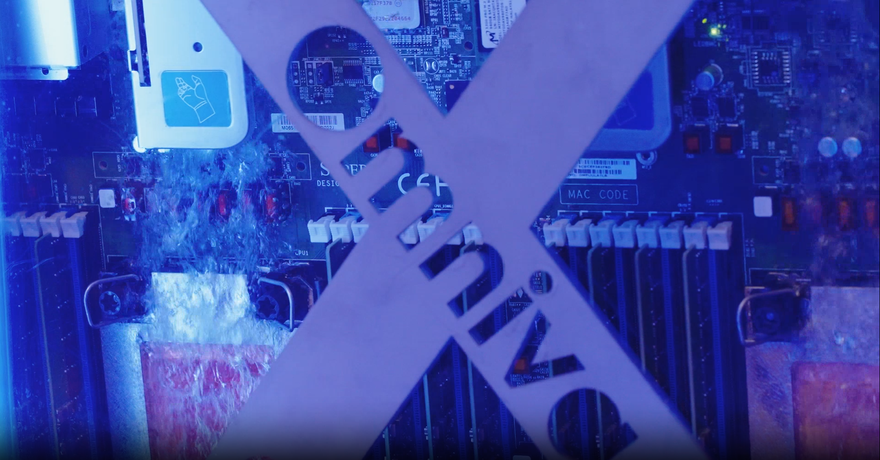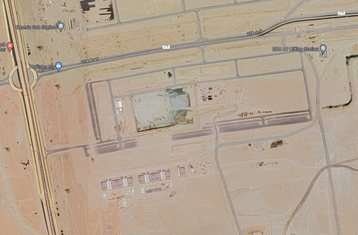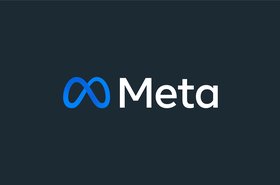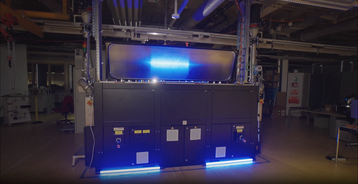It started as a plan to build a 1GW data center in the desert.
Secretive startup Omniva grabbed headlines this summer when it was outed by The Information, but details about the AI cloud company remained scant.
Over the past three months, DCD spoke to current and former employees and contractors at Omniva to learn about the history of the company, who is funding it, and what happened to its ambitious chip design plans.
Many of those we spoke to painted a picture of a business with near-bottomless funding held back by ill-defined goals and a lack of data center expertise at the top.
Representatives from the company declined to comment, and did not respond to a detailed list of questions.
This feature appeared in Issue 50 of the DCD Magazine. Read it for free today.
The business began as Moneta United Technologies, initially registered in Kuwait back in 2014. But it was only at the turn of the current decade that the company moved from being a holding entity to an actual business with a plan: Burst into the data center space with a huge facility in Kuwait.
Initially, Moneta hoped to target wholesale customers, but the early data center designs were unimpressive, apparently delivering low uptime. Then came the first pivot - to build the world’s largest cryptomining data center.
Moneta/Omniva is funded by the wealthy family-owned Kuwaiti business Khalid Yousuf Al-Marzouq & Sons Group of Companies (KMGC), sources told DCD. The family’s oil interests were expected to provide discounted energy to fuel the cryptomining facility, former staffers told us.
Publicly available documents verify this: Kuwaiti registration documents show KMGC’s ownership of Moneta United Technologies, while documents in Delaware, New York, and elsewhere show the company’s various names - Moneta Tech, Moneta Systems, and - eventually - Omniva and Omniva Systems.
KMGC is best known for the Sabah Al-Ahmad Sea City Project, a multi-billion dollar city built with canals forming 200 kilometers of artificial shoreline, and housing up to 250,000 residents.
The conglomerate also has huge real estate holdings, an oil and gas business, logistics and construction businesses, and a newspaper.
The idea to get into data centers was pushed by the youngest son of the family, people familiar with the matter told DCD. “The family wants to build an empire that will rival Google and Microsoft,” one person said, expressing doubts about the likelihood of that happening.
DCD granted those interviewed anonymity, in order to speak freely and without fear of retribution.
“They have always been aggressive about secrecy - it was 'don't tell your family, don't tell your friends, don't tell anybody about what we're doing, who you're working for, how it's funded,'" one former employee recalled.
The company in 2022 planned to build two data centers in Kuwait - the first at the entrance to the Sea City Project, and the other slightly to the north and cooled by seawater.
Alongside the facilities themselves, Moneta began hiring around the world with a plan to build custom immersion-cooled racks and design their own ASIC semiconductors to mine Bitcoin.
“The engineering lab was in Seattle, they opened a Santa Clara office with some former TSMC people to be kind of close to the semiconductor space,” one source said. “They also opened in Zurich, as well as an operational team in Kuwait for the data center itself.”
Those tanks, codenamed Athena, used 3M’s Novec HFE-7100 fluid in a two-phase evaporation/condensation natural flow system.
"The most important and only fixed design parameter is that the heat of the tank coolant shall be rejected to a chilled water flow with inlet temperature of 45°C and outlet temperature of 53°C,” one document states.
Another presentation seen by DCD shows a proposed tank design with an overhead gantry and a "simple mechanical arm to manipulate miners and PSUs."
3M is phasing out Novec 7100 due to environmental and health concerns over PFAS (poly-fluoroalkyl substances), and suggests customers shift to BestSolv Sierra, a drop-in replacement based on hydrofluorether, the same PFAS chemical as the Novec products.
It is not known if Omniva has switched to Sierra, but recent photographs show that the company is still developing immersion tanks.
“We were recruiting people from 3M,” an employee said. “Immersion [cooling] is key.”
Under the older Moneta design, which may have changed since the latest pivot, Athena tanks were capable of holding 30 GPUs, with an IT capacity of 500kW.
"It's crypto-worthy, but it's not AI stuff," one former staffer said.
Under design plans seen by DCD, the Moneta data center was expected to feature 1,650 server tanks - for a total of 825MW. The facility itself is shown to have a total available power of 864MW on a 40,000 sqm (430,555 sq ft) plot, a white paper shared with contractor Araner states. Araner did not respond to requests for comment.
But behind the large numbers and ambitious plans, employees painted a picture of a company whose senior leadership had little understanding of data centers. To make matters worse, there was confusion over who exactly was in charge, with vying consultants bending the ear of the Al-Marzouq family.
"I witnessed bitter arguments," one employee said. Another added: "They are not data center professionals, they are not operations professionals, they're not supply chain professionals, they are consultants.
“What they had was the trust of the investors, and so they were allowed to drive the development of the company, even if they didn't know what the hell they were doing."
One former Moneta staffer told of initial expectations that the 1GW facility could be built in one year for $200 million. “If you've been around data centers, you know that’s not possible.”
Another said that they were told that chillers could be placed inside the building in air-locked rooms, and that staffers didn’t need the building to be kept cool. “They said we don't need space chillers, we're gonna have people with helmets that have cooling units on their head,” despite temperatures in the country reaching 50°C (122°F).
More troublingly, they claimed that leadership did not “want to use a water mist system or fire suppression gas - they just wanted to use fire extinguishers,” and designed the facility with no easy escape routes.
The culture of extreme secrecy also hindered development, with multiple staffers describing strained relationships with partners and suppliers including 3M and TSMC. Engineering services company Jacobs was originally attached to the data center project, but was kicked off the contract after an RFP to potential suppliers was not deemed secret enough.
Moneta struggled to find a replacement, ultimately turning to UAE-based power and cooling company Araner. “They have supplied data centers, but they've never managed them. It's the first one, and they're going to be the consultancy and the vendor,” a former employee said.
Finally, staffers spoke of another, less obvious problem at Moneta: There was too much money.
Staff were paid generously. Salaries shown to DCD were several times the norm, alongside guaranteed 30 percent annual bonuses. “They were paying people wild amounts of money, so that was kind of intoxicating,” one said.
But it also led to a flawed culture. “They would just throw money at a problem, instead of looking at it. But spending more money or hiring more people doesn’t always solve things,” another said.
Two said that, when they joined, their direct managers made it clear that they had little faith in the project reaching any of its goals - but that they were making good money while they could. “The owner is being made promises that they could not keep from the very beginning. I was told this to cover up,” a former employee said.
And then came the latest pivot. With Bitcoin prices crashing and the project dragging on, even the discounted energy prices the family promised staffers were not enough to keep the project viable.
That, combined with the explosive launch of ChatGPT, led to the company once again reinventing itself in January - this time targeting the biggest trend in the sector:
"Omniva Technology: Harness the power of AI, Data Centers, Cloud Infrastructure, Large Language Models, High-Performance Computing, Machine Learning, and Energy Efficiency all in one place,” a company description explains.
The Information earlier revealed that the company hired Sean Boyle (the CFO of AWS until 2020), Kushagra Vaid (a former Microsoft VP and distinguished engineer until 2021), and T.S. Khurana (Meta’s VP of infrastructure until June), bringing much-needed data center expertise to senior management.
Joining the trio at Omniva are Tyson Lamoreaux (former VP of Amazon's Project Kuiper, software, networking & infrastructure services), Matthew Taylor (previously SambaNova and Ampere), and Somnuk Ratanaphanyarat (TSMC).
It is understood that Vaid also took a number of Microsoft employees with him, while AWS staffers have also taken roles in HR and legal.
In tandem with the new hires and the rebrand from Moneta to Omniva, the company underwent mass layoffs - primarily in its ASIC chip team, although it still retains a small operation.
Those that left expressed no ill will, pointing to generous severance packages.
But they remain unconvinced whether the new hires will be able to fix the fundamental issues at the business, unless the investors can be made to focus on the technical fundamentals of the data center sector.
Until then, Omniva remains little more than what it was two years ago - a dream in a desert.





